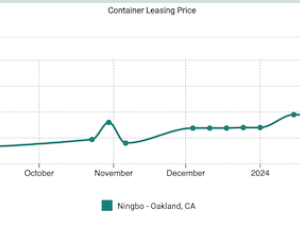Baltic index tumbles further over demand worries
By: Reuters | Jan 19 2016 at 09:32 AM | Liner Shipping
The Baltic Exchange’s main sea freight index, which tracks rates for ships carrying industrial commodities, continued its freefall to close at a record low on Tuesday amid concerns over vessel oversupply and global demand shortage.
The overall index, which gauges the cost of shipping dry bulk cargoes including iron ore, cement, grain, coal and fertiliser, fell for the 11th straight session and was down six points, or 1.63 percent, at 363 points.
The index has plunged 115 points or around 24 percent in January.
The capesize, panamax, supramax, and handysize indices also continued their downward spiral and touched their all time lows on Tuesday.
The dry bulk sector has taken a beating from the slowdown in Chinese business at a time when the sector is struggling with huge overcapacity.
The capesize index fell 12 points, or 6.09 percent, to 185 points. Average daily earnings for capesize vessels decreased by $68 to a new record low of $2,662.
Capesizes typically transport 150,000-tonne cargoes such as iron ore and coal and have been particularly affected by a fall-off in coal and iron ore demand in China.
The panamax index fell 6 points to 369 points.
Average daily earnings for panamaxes, which usually carry coal or grain cargoes of about 60,000 to 70,000 tonnes, fell $47 to $2,952.





